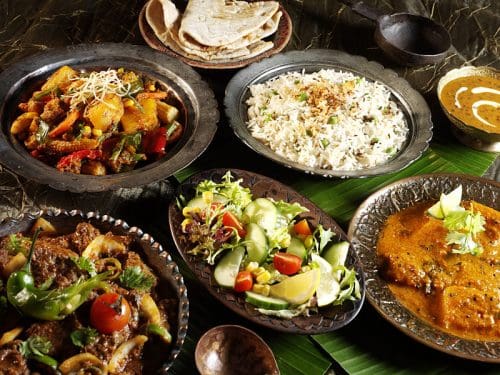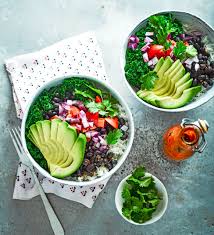Generation Z is poised to make a significant impact on the future of food culture, driven by their unique values, preferences, and digital fluency.

As the digital-native Generation Z steps into the spotlight, they’re set to revolutionize food culture with their distinctive values, preferences, and tech-savviness. This generation, more than any before, merges the love for gastronomic innovation with a deep-rooted commitment to sustainability and wellness, reshaping food culture in profound ways.
From farm to table and beyond, Gen Z’s influence is anticipated to redefine our food culture, ingredient choices, and even our cooking methods. Let’s explore five key ways in which this vibrant generation is poised to transform the culinary landscape.
Gen Z’s impact on the food industry extends beyond consumer preferences; they are actively engaging in food innovation and entrepreneurship. This generation is leveraging technology to develop sustainable food solutions, such as lab-grown meats, vertical farming, and zero-waste grocery stores.

They are also significant proponents of regenerative agriculture, promoting farming practices that restore soil health and biodiversity. Moreover, Gen Z food culture is driving the demand for transparency in food labelling, pushing for clearer information on sourcing, nutritional content, and environmental impact.
Educational initiatives and food literacy programs led by Gen Z activists are empowering communities to make informed, sustainable food choices. This generation’s holistic approach encompasses not just what they eat, but how it is produced, distributed, and consumed, ensuring a comprehensive shift towards a sustainable and inclusive food future.
The concept of “food as a culture”
The concept of “food as a culture” is gaining traction, reflecting a shift in how people perceive and interact with food. This new paradigm views food not just as sustenance but as an integral part of cultural identity, community, and social cohesion. It’s about celebrating diverse culinary traditions and understanding the stories, values, and histories they represent. This approach encourages a deeper appreciation of local and indigenous foods, emphasizing the preservation of heritage and culinary diversity in the face of globalization.
Food as culture also highlights the social aspect of eating, recognizing meals as communal experiences that bring people together. This perspective fosters inclusivity, where food becomes a medium for cross-cultural exchange and understanding. Initiatives like farm-to-table dining, food festivals, and community-supported agriculture are part of this movement, reconnecting people with the origins of their food and the artisans behind it.

Furthermore, the rise of food storytelling through media, such as documentaries, cooking shows, and social media platforms, has amplified this cultural connection. People are increasingly interested in the narratives behind what they eat, from the ethical practices of food production to the traditional methods passed down through generations.
In essence, viewing food as a culture transcends the act of eating. It integrates culinary practices into the broader social and cultural fabric, enriching lives with a sense of identity, community, and belonging. This holistic approach to food underscores its role in shaping societal values, fostering sustainability, and promoting a more connected and empathetic world.
As this generation comes of age, here are five interesting predictions for how Gen Z will shape the future of food culture by Chef Sourabh, Founder of Craft of Food 2.0
Embracing Plant-Based Eating
Gen Z is leading the charge towards plant-based eating, driven by concerns about sustainability, animal welfare, and personal health. As this generation prioritises ethical and eco-friendly food choices, plant-based alternatives will become increasingly mainstream. Gen Z’s embrace of plant-based eating will drive innovation in the food industry, leading to a wider variety of delicious and sustainable plant-based options in its food culture footprint.
Demand for Transparency and Accountability
Transparency and accountability will be paramount for Gen Z regarding food production and sourcing. This generation values authenticity and honesty from food brands, expecting full transparency about ingredients, sourcing practices, and production methods. Food companies that prioritize ethical sourcing, environmental sustainability, and social responsibility will earn the trust and loyalty of Gen Z consumers.
Tech-Driven Dining Experiences
Gen Z, known for their digital savviness, will drive the adoption of technology in dining experiences. From mobile ordering and delivery apps to augmented reality menus and virtual cooking classes, technology will play a central role in how Gen Z interacts with food and embraces different food culture. Restaurants and food brands that embrace technology to enhance convenience, personalization, and engagement will resonate with Gen Z consumers.

Cultural Diversity and Inclusivity
Gen Z’s appreciation for cultural diversity will shape food culture, leading to a greater appreciation for global cuisines and culinary traditions. This generation embraces diverse flavours, ingredients, and cooking techniques from around the world, seeking out authentic and immersive food culture experiences. As a result, food culture will become more inclusive and representative of the diverse backgrounds and tastes of Gen Z consumers.

Focus on Food Waste Reduction
Gen Z’s commitment to environmental sustainability will drive efforts to reduce food waste throughout the supply chain. This generation will demand innovative solutions from food companies to minimize waste, whether through compostable packaging, surplus food redistribution, or creative upcycling of food scraps. Gen Z’s emphasis on sustainability will lead to a more conscientious approach to food production, distribution, and consumption.

Shaping a Sustainable and Inclusive Food Future
In conclusion, Generation Z will play a pivotal role in shaping the future of food culture, driven by its values of sustainability, authenticity, and inclusivity. As this generation continues to assert its influence, expect to see a shift towards plant-based eating, greater transparency and accountability from food brands, and innovative tech-driven dining experiences. Gen Z’s commitment to cultural diversity and environmental stewardship will pave the way for a more sustainable, inclusive, and delicious food future.
About the author: Chef Sourabh, Founder of Craft of Food 2.0
Read more: Latest



